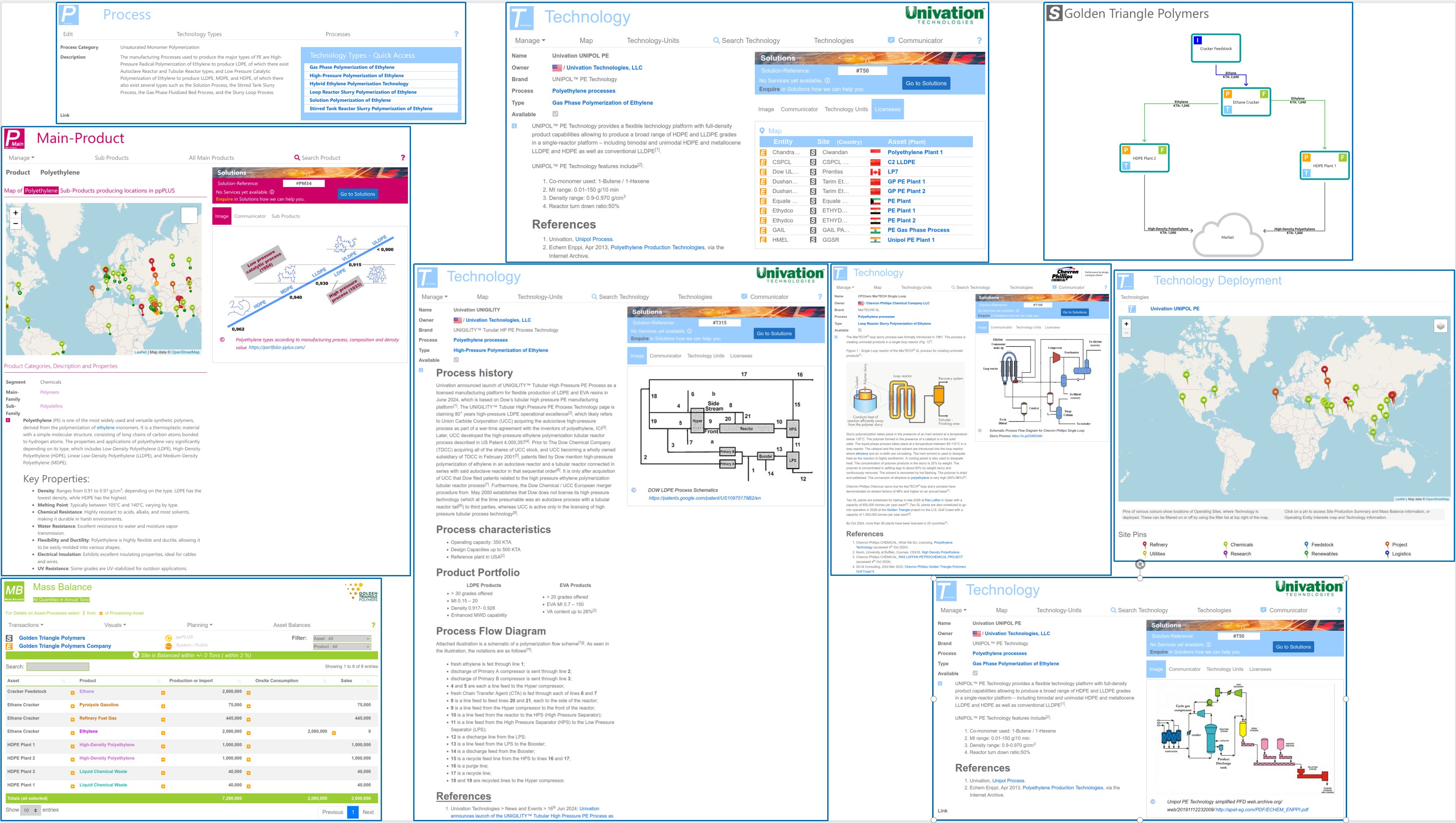Scaling New Heights in Polyethylene Production Capacity.
- Product
- Polyethylene
- Message Category
-

Scaling New Heights: How Univation and Industry Rivals Are Redefining Polyethylene Production Capacity and Flexibility
The polyethylene (PE) production industry is experiencing a remarkable transformation, driven by advances in process technology and a relentless pursuit of scale and efficiency. At the center of this evolution is Univation Technologies, which recently announced a new UNIPOL™ PE Process design capable of producing 800,000 tonnes per year. This announcement marks a significant leap forward in the scale of single-line PE production, underscoring the company’s commitment to pushing technological boundaries while maintaining the flexibility to meet diverse market needs.
Univation’s journey toward ever-greater production capacities is a testament to decades of innovation. The company’s first UNIPOL™ PE plant, built in 1989, had a capacity of 225,000 tonnes per year, which at the time was a world record for a single-reactor PE facility. By 2016, the landscape had changed dramatically, with more than twenty operating lines each producing at least 400,000 tonnes per year, and single-line capacities reaching today 650,000 tonnes. The latest 800,000 tonnes per year design represents a substantial 23 percent increase over the previous benchmark, and the scale of this expansion is even more striking when considering that a 150,000-tonne increase is equivalent to the entire output of a typical reactor from the 1970s, highlighting the extraordinary progress that has been made in reactor engineering and process optimization.
A key differentiator for the UNIPOL™ PE Process is its product flexibility, enabled by a sophisticated portfolio of catalysts. By selecting from a dedicated line of catalysts, producers can seamlessly switch between a full spectrum of PE products, including metallocene-based resins, bimodal and unimodal HDPE, and LLDPE, all within the same reactor. This versatility allows manufacturers to respond rapidly to changing market demands without the need for costly and time-consuming reactor modifications, setting UNIPOL™ PE apart from many competing technologies, which often require dedicated lines for each product type.
The race for the world’s highest-capacity PE plant is intensifying, with Univation’s latest announcement coming on the heels of significant developments from Chevron Phillips Chemical (CP Chem). CP Chem’s MarTech™ single-loop slurry process is now being deployed at a massive scale, with the Golden Triangle project in Texas featuring two HDPE lines, each with a capacity of 1,000,000 tonnes (1 million tonnes) per year, and a similar scale project with two HDPE lines, each with a capacity of 850,000 tonnes per year at the Ras Laffan Petrochemical Complex in Qatar. While CPChem has focused on maximizing HDPE production through specialized lines, Univation’s approach emphasizes both scale and product diversity, offering producers a compelling combination of flexibility and efficiency.
Achieving such immense reactor capacities is a feat of engineering that cannot be overstated. Scaling up polymerization reactors to handle up to 1 million tonnes per year and beyond requires overcoming significant technical challenges. Advanced cooling systems, real-time temperature controls, and innovative designs are essential to manage the intense heat and mixing requirements of high-throughput polymerization, as well as enhancing operational reliability and efficiency, ensuring that these mega-plants can run safely and consistently at peak performance.
In this rapidly evolving landscape, access to accurate and up-to-date technical information is more important than ever. Platforms like portfolio planning PLUS (ppPLUS) have emerged as invaluable resources for industry professionals, offering open-access, collaborative tools for tracking global PE plant deployments. Through ppPLUS, users can explore detailed information on PE plants worldwide, visualize production clusters, and contribute data on plant capacities, technology choices, and mass balances. This level of transparency and collaboration supports better decision-making and accelerates the adoption of best practices across the industry.
In summary, the latest advances in PE production technology, exemplified by Univation’s 800,000 tonnes per year UNIPOL™ PE Process and CP Chem’s MarTech mega-projects, are redefining the limits of scale and flexibility in polymer manufacturing. These achievements are not only a testament to the ingenuity of process engineers but also a harbinger of a more efficient, responsive, and interconnected global PE industry. As collaborative platforms like ppPLUS continue to democratize access to technical knowledge, the pace of innovation is likely to accelerate, shaping the future of plastics production for decades to come.
#hdpe #lldpe #bimodal #metallocene #univation #unipol #martech #slurryloop #gasphase #massbalance #cpchem #chevronphillips






